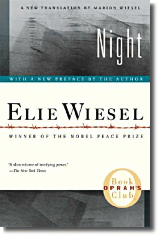
Today is the last day of school before Christmas holidays begin, and I hope everyone has a fun and enjoyable vacation.
School (and the library) will start up again on Wednesday, January 3rd, 2007. See you then!

If you have any questions or comments about these sites, please don't hesitate to let me know!
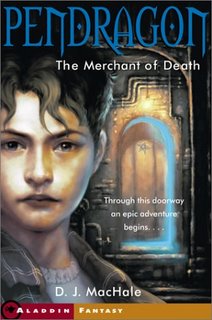 Pendragon: The Merchant of Death by D. J. MacHale
Pendragon: The Merchant of Death by D. J. MacHale The Hero and the Crown by Robin McKinley
The Hero and the Crown by Robin McKinley Tuck Everlasting by Natalie Babbitt
Tuck Everlasting by Natalie Babbitt The Golden Compass by Philip Pullman
The Golden Compass by Philip Pullman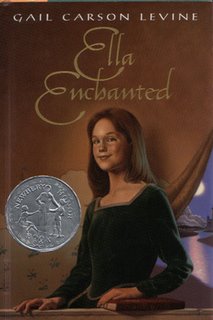 Ella Enchanted by Gail Carson Levine
Ella Enchanted by Gail Carson Levine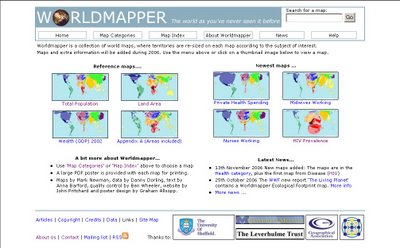 Click on the image above to view the Worldmapper homepage.
Click on the image above to view the Worldmapper homepage.
Don't look like your usual maps of the world, do they?
This site currently has 227 maps of everything from Land Area to Tourist Destinations to Cars Exports (check out how massive and distorted Japan is!) to Forest Loss. Each map is linked to a descriptive webpage that outlines exactly what the map is about and contains a PDF poster that contains further information and can be printed out and displayed. Check it out!

LibraryThing has become my new favourite internet toy, and it does some really interesting things with books.
First of all, people from all over the world log on and enter books that they own or that they have read into their "library," or personal collection of books. They also use tags in order to help find their books, like Flickr uses tags for photos. You can look at the tag cloud for PRHS's account to see what tags can look like.
After people have entered books into their libraries (and there are now over 8 million books in LibraryThing), LibraryThing can do some analysis and find out things such as:
- how many people own a certain book
- what books you might like based on what you've already got in your library or a book you've already read - this is the Book Suggester feature.
- and what books you might NOT like if you enjoyed a particular book - this is the Book Unsuggester.
I also use LibraryThing to generate those lists of new books that you see on the right side of this page if you scroll down.
What do you think of LibraryThing? Leave a comment and let me know!
 Artemis Fowl by Eoin Colfer
Artemis Fowl by Eoin Colfer
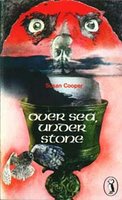
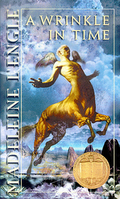


 Airborn by Kenneth Oppel
Airborn by Kenneth OppelSet in an imaginary past where giant airships rule the skies, Airborn is the story of Matt Cruse, the 15-year-old cabin boy of the 900-foot luxury airship Aurora. Hundreds of feet over the Pacificus Ocean, Matt fearlessly performs a dramatic rescue to save an old man from his crippled hot-air balloon. Before he dies, the stranger tells Matt about the fantastic, impossible creatures he has seen flying through the clouds. Matt dismisses the story as the ravings of a dying man, but when a beautiful, bold girl arrives on the Aurora a year later, determined to prove the story true, Matt finds himself caught up in her quest. But can he and Kate solve the mystery before pirates, shipwreck and frightening predators end their voyage forever? - from the publisher.
Crispin: the cross of lead by Avi
"Asta's son" is all he's ever been called. The lack of name is appropriate, because he and his mother are but poor peasants in fourteenth-century medieval England. But this thirteen-year-old boy who thought he had little to lose soon finds himself with even less -- no home, family, or possessions. Accused of a crime he did not commit, he has been declared a "wolf's head." That means he may be killed on sight, by anyone. If he wishes to remain alive, he must flee his tiny village. All the boy takes with him is a newly revealed name -- Crispin -- and his mother's cross of lead.
His journey through the English countryside is amazing and terrifying. Especially difficult is his encounter with the juggler named Bear. A huge, and possibly even mad, man, Bear forces the boy to become his servant. Bear, however, is a strange master, for he encourages Crispin to think for himself.
Though Bear promises to protect Crispin, the boy is being relentlessly pursued. Why are his enemies so determined to kill him? Crispin is gradually drawn right into his enemies' fortress where -- in a riveting climax -- he must become a different person if he is to save Bear's life and his own. - from the publisher.
About Crispin on Avi's website.
Iceberg by Clive Cussler
 Into thin air by Jon Krakauer
Into thin air by Jon Krakauer Peter and the Starcatchers by Dave Barry and Ridley Peterson.
Peter and the Starcatchers by Dave Barry and Ridley Peterson. Nicknamed after his hometown of Kakabeka, Canada, Kak dreams of flying with the Allied bombers in World War II. So at 16, underage and desperate to escape his abusive parents, he enlists in the Canadian Air Force. Soon he is trained as a wireless operator and sent to a squadron in England, where he's unabashedly gung ho about flying his first op. He thinks the night ops over Germany will be like the heroic missions of his favorite comic-book heroes. Good will vanquish evil. But his first time out, in a plane called "B for Buster," reveals the ops for what they really are--a harrowing ordeal. The bombing raids bring searchlights . . . artillery from below . . . and night fighters above hunting to take the bombers down. One hit, Kak knows, and "B for Buster," along with him and his six crewmates, could be destroyed.
Nicknamed after his hometown of Kakabeka, Canada, Kak dreams of flying with the Allied bombers in World War II. So at 16, underage and desperate to escape his abusive parents, he enlists in the Canadian Air Force. Soon he is trained as a wireless operator and sent to a squadron in England, where he's unabashedly gung ho about flying his first op. He thinks the night ops over Germany will be like the heroic missions of his favorite comic-book heroes. Good will vanquish evil. But his first time out, in a plane called "B for Buster," reveals the ops for what they really are--a harrowing ordeal. The bombing raids bring searchlights . . . artillery from below . . . and night fighters above hunting to take the bombers down. One hit, Kak knows, and "B for Buster," along with him and his six crewmates, could be destroyed.He can't confide his feelings to his crew, since he's already worried that they'll find out his age. Besides, none of them seem afraid. Only in Bert, the slovenly caretaker of the homing pigeons that go on every op, does Kak find an unlikely friend. Bert seems to understand what the other men don't talk about--the shame, the sense of duty, and the paralyzing fear. As Kak seeks out Bert's company, he somehow finds the strength to face his own uncertain future. - from the publisher
 And no birds sang by Farley Mowat.
And no birds sang by Farley Mowat. The sky is falling by Kit Pearson.
The sky is falling by Kit Pearson.
During World War II, thousands of British children were evacuated to Canada. Many would spend the war years in the homes of complete strangers. In her award-winning novel for middle readers, The Sky Is Falling, Kit Pearson tells the story of one war child whose Canadian visit was far from happy. Norah has no wish to leave her village home in the English countryside. And she certainly doesn't want the responsibility of looking out for her five-year-old brother Gavin. When it becomes clear that the wealthy Toronto widow who sponsored the two siblings really only wanted a boy, Norah retreats into a secret world of books and truancy, deserting Gavin to the overbearing attentions of his newly appointed "Aunt Florence." - from the publisher.
 Turned away: the World War II diary of Devorah Bernstein by Carol Matas.
Turned away: the World War II diary of Devorah Bernstein by Carol Matas.
January 9, 1911: A letter arrived from Sarah, again tucked in with the mail from Uncle Nathaniel.
Chere Devorah,
Our worst fears came to pass. Three huge bangs on the door. Maman ran to my room and told me to keep the door closed and not to come out. Within minutes she came back and sank down on my bed weeping. "They've taken him," she said. "To Drancy. Arrested."
I can barely sleep anymore. I keep hearing that pounding on the door. Sometimes I feel the sound will explode in my brain. Chere Devorah, what is wrong with the world? I don't understand any of this. Do you?
Your loving cousin, Sarah.
The letter from Uncle Nathaniel told of being arrested, but little else, except another question about how the visas are going. I could hear Mommy crying from her bedroom. - from the publisher.
Carol Matas' website.
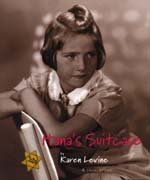 Hana's suitcase by Karen Levine.
Hana's suitcase by Karen Levine.
In 2000, a suitcase arrived at a children's Holocaust education center in Tokyo, Japan, marked Hana Brady, May 16, 1931, and "Waisenkind"--the German word for orphan. In a suspenseful journey, Fumiko, the center's curator, searches for clues to young Hana and her family. -from the publisher.
Hana's Suitcase website, including an interview with George Brady.
Watch a TV clip about Hana's suitcase.
Listen to the radio documentary that inspired this book.
Winning the Ridge: the Canadians at Vimy Ridge, 1917 by N. M. Christie.
"On April 9th, 1917, for the first time in the war, all four Canadian Infantry Divisions attacked side by side. Their capture of the 'impregnable' German bastion of Vimy Ridge brought instantaneous, world-wide recognition. For the first time in the war, the Allies had won something tangible.
"With the capture of Vimy Ridge, the reputation of the Canadian Corps as the most effective fighting machine on the Western Front, and of Canada itself, was sealed." - p. vii.
Many historians point to the Battle of Vimy Ridge on Easter Monday, 1917, as the beginnings of Canada's national identity. With almost 11,000 casualties this identity came at a high price, and Vimy is the site of the only Canadian National Historic Site outside of Canada's political boundaries.
Watch veteran eyewitness accounts of Vimy.
